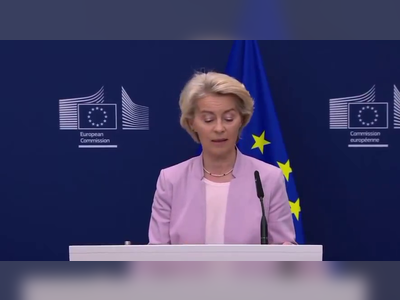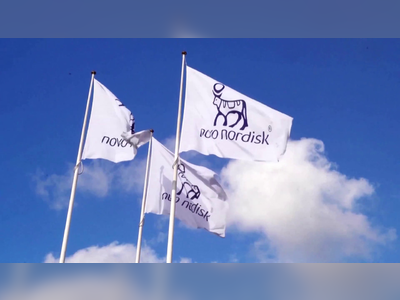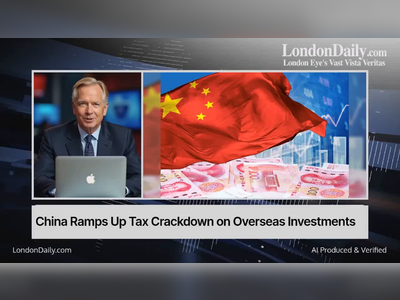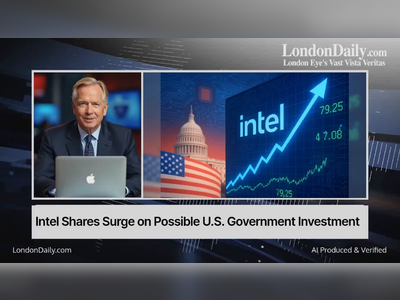The CEO Who Replaced 80% of Employees for the AI Revolution: "I Would Do It Again"
Eric Vaughan dismantled IgniteTech, replacing most of its staff to align with his AI vision. Internal resistance turned into active sabotage, leading him to recruit a new team that embraced change. By the end of 2024, the company had launched new products, completed a major acquisition, and achieved rare profitability.
Eric Vaughan, CEO of the American enterprise software company IgniteTech, made the most radical decision of his career at the start of 2023.
While many technology companies were still questioning whether generative artificial intelligence was a genuine tool or a passing fad, he was already convinced it represented a fundamental shift that would determine the future of the tech world.
He chose to integrate AI at the very core of the company’s operations.
Despite Vaughan’s vision, not enough employees at IgniteTech shared his belief in the revolution he foresaw.
Many refused to accept his projections or the changes he demanded.
In response, Vaughan took a drastic step: dismantling the company almost entirely and replacing nearly 80 percent of its workforce.
Vaughan admitted that the move was extreme.
“This was not our goal,” he revealed in an interview.
“It was extraordinarily difficult.
But I realized that changing people’s mindsets is much harder than adding new skills.”
The decision positioned IgniteTech as an extreme example of corporate adaptation in the AI era, where the rules are changing quickly, the pressure to adopt new technologies is mounting, and executives are showing decreasing patience toward employees who struggle to adapt.
Initially, Vaughan tried to instill the new culture among existing staff.
The company almost entirely restructured its working routine: Mondays became “AI Days,” when employees were prohibited from working on anything unrelated to AI projects; quarterly targets were scrapped; and the entire customer meeting structure was redesigned.
At the same time, IgniteTech funded prompt engineering courses for employees, purchased licenses for AI tools, and brought in external experts to inspire the teams.
“It was supposed to be a gift to the employees,” Vaughan explained, “a massive investment of time and money by the company for their benefit, giving them new and essential skills.”
Instead of enthusiasm, Vaughan recalled that employees responded with strong resistance.
“It wasn’t just hesitation, it was outright sabotage,” he said.
A recent report indicated this was not unique: one in three salaried workers admitted to actively sabotaging AI adoption efforts at their companies.
Data showed that employees refused to use tools, deliberately produced poor outputs, or avoided signing up for training.
Some feared losing their jobs to AI, while others were frustrated by the lack of clear strategy or by technology that did not perform as expected.
Vaughan added that he was surprised to discover the strongest opponents of AI adoption were not from marketing or sales, but from the company’s own technology teams—those expected to be at the forefront.
“Instead of seeing the potential, they insisted on talking about what these systems couldn’t do,” he said.
At that point, Vaughan realized it was impossible to force people to change their mindset.
“You can’t make someone change if they don’t believe in the change,” he explained.
After months of conflict, IgniteTech decided to replace its employees.
The company launched a massive recruitment drive, hiring “Innovation and AI Specialists” across all departments, from finance to marketing.
The organizational structure was almost entirely redesigned, and even non-technical departments were reorganized under a new framework with AI at its center.
“It forced everyone to share knowledge and work within the same framework,” Vaughan said.
By the end of 2024, IgniteTech had launched two AI solutions awaiting patents, including an email automation platform called Eloquens AI, acquired the company Khoros, and maintained unusually strong financial resilience for a firm that had undergone such upheaval.
Accordingly, Vaughan has no regrets.
He acknowledged the journey was painful, insisted he would not recommend others follow the same path, but said he is certain it saved the company.
“This is not just a technological change,” he stated.
“Artificial intelligence brings with it a profound cultural and business shift.
In the end, everyone has to be in the same boat, rowing together.
Otherwise, we won’t get anywhere.”
While many technology companies were still questioning whether generative artificial intelligence was a genuine tool or a passing fad, he was already convinced it represented a fundamental shift that would determine the future of the tech world.
He chose to integrate AI at the very core of the company’s operations.
Despite Vaughan’s vision, not enough employees at IgniteTech shared his belief in the revolution he foresaw.
Many refused to accept his projections or the changes he demanded.
In response, Vaughan took a drastic step: dismantling the company almost entirely and replacing nearly 80 percent of its workforce.
Vaughan admitted that the move was extreme.
“This was not our goal,” he revealed in an interview.
“It was extraordinarily difficult.
But I realized that changing people’s mindsets is much harder than adding new skills.”
The decision positioned IgniteTech as an extreme example of corporate adaptation in the AI era, where the rules are changing quickly, the pressure to adopt new technologies is mounting, and executives are showing decreasing patience toward employees who struggle to adapt.
Initially, Vaughan tried to instill the new culture among existing staff.
The company almost entirely restructured its working routine: Mondays became “AI Days,” when employees were prohibited from working on anything unrelated to AI projects; quarterly targets were scrapped; and the entire customer meeting structure was redesigned.
At the same time, IgniteTech funded prompt engineering courses for employees, purchased licenses for AI tools, and brought in external experts to inspire the teams.
“It was supposed to be a gift to the employees,” Vaughan explained, “a massive investment of time and money by the company for their benefit, giving them new and essential skills.”
Instead of enthusiasm, Vaughan recalled that employees responded with strong resistance.
“It wasn’t just hesitation, it was outright sabotage,” he said.
A recent report indicated this was not unique: one in three salaried workers admitted to actively sabotaging AI adoption efforts at their companies.
Data showed that employees refused to use tools, deliberately produced poor outputs, or avoided signing up for training.
Some feared losing their jobs to AI, while others were frustrated by the lack of clear strategy or by technology that did not perform as expected.
Vaughan added that he was surprised to discover the strongest opponents of AI adoption were not from marketing or sales, but from the company’s own technology teams—those expected to be at the forefront.
“Instead of seeing the potential, they insisted on talking about what these systems couldn’t do,” he said.
At that point, Vaughan realized it was impossible to force people to change their mindset.
“You can’t make someone change if they don’t believe in the change,” he explained.
After months of conflict, IgniteTech decided to replace its employees.
The company launched a massive recruitment drive, hiring “Innovation and AI Specialists” across all departments, from finance to marketing.
The organizational structure was almost entirely redesigned, and even non-technical departments were reorganized under a new framework with AI at its center.
“It forced everyone to share knowledge and work within the same framework,” Vaughan said.
By the end of 2024, IgniteTech had launched two AI solutions awaiting patents, including an email automation platform called Eloquens AI, acquired the company Khoros, and maintained unusually strong financial resilience for a firm that had undergone such upheaval.
Accordingly, Vaughan has no regrets.
He acknowledged the journey was painful, insisted he would not recommend others follow the same path, but said he is certain it saved the company.
“This is not just a technological change,” he stated.
“Artificial intelligence brings with it a profound cultural and business shift.
In the end, everyone has to be in the same boat, rowing together.
Otherwise, we won’t get anywhere.”









